Three things I wish I knew before selecting my first ERP
After working on several ERP projects, I want to share a few thoughts that might help another person preparing to select their first ERP
ERP runs on a computer, but it a business tool
Business is people buying from other people. When purchasing a million-dollar item, you are primarily dealing with a single person. At other levels, business is about a single machine operator on the plant floor delivering a single component to the next operation on time and in proper working condition.
ERP can help plan the next activity and will keep all the individual transactions throughout your business as long as you need to have them kept.
Don’t view ERP selection as ‘just a technology project’. It is a tool to help people – your employees – manage your business in the way it should be run.
No ERP is perfect
I can sense salespeople around the world expressing shock. Nevertheless, we all find some ERP features that just don’t work the way we want them to for our business. These could be program bugs. Usually, however, the developers and programmers just had a different concept of the right way to do things than we do.
Get through your ERP selection project unscathed using our step-by-step ERP selection survival guide
Rarely do these differences cause a major problem. We are resourceful. If our teams get their heads together, we can almost always develop a work around that satisfies. Our work around solution will be easy to use in day-to-day operations and it will fully comply with any rules.
We can also simply change our process to match the process the developers had in mind. Our process was developed over years by some of the brightest people who ever worked for the business. If we try out the alternate, it likely will work just as well and sometimes even better. In addition, we can use the ERP as it is.
Managing associated change is harder that selecting the ERP
Selecting and implementing an ERP is a big task. It is also a project that is pretty well documented and can be thought of as a series of steps. Finish that one and start on the next.
Change management comes from the world of psychologists and sociologists. We took the class back in college but since then, we have worked in sales or accounting or engineering. Be sure there will be a few who absolutely resist any change such as ERP. Many more will accept the ERP but be slow to actually change their behavior. Once I saw a situation where people still used a series of spreadsheets, all properly signed to document transactions. The ERP process was much faster and easier and all the documentation was electronic.
Watch what happens in a crisis. If people use the ERP process, your change management was successful. If they revert to the old process, you have work still to do.
Free white paper
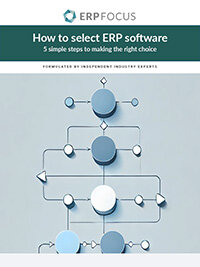
How to Select ERP
Learn to select your ERP in 5 easy steps by following our expert's advice
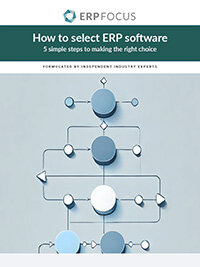
Featured white papers
-
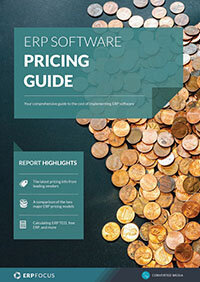
ERP Software Pricing Guide
Get the latest pricing information on over 80 popular ERP systems, and learn how to budget for your ERP project in our free guide
Download -
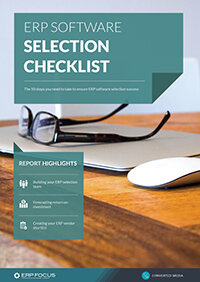
60-Step ERP Selection Checklist
Get the comprehensive checklist for your ERP selection project
Download -
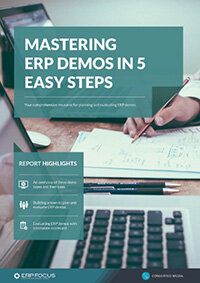
ERP Demo Guide & Scorecard
Master your ERP demo with 5 easy steps using our free guide (includes demo scorecard)
Download
Related articles
-

How to evaluate your ERP RFP responses
The dos and don'ts of evaluating ERP RFPs (including RFP evaluation matrix)
-

CMMC Compliance: What Aerospace and Defense Manufacturers Need to Know
Key insights on CMMC compliance, deadlines, and securing DoD contracts with CMMC 2.0 certificatio...
-

The best ERP systems for process manufacturing
Consider these ERP systems when selecting your next process manufacturing ERP

